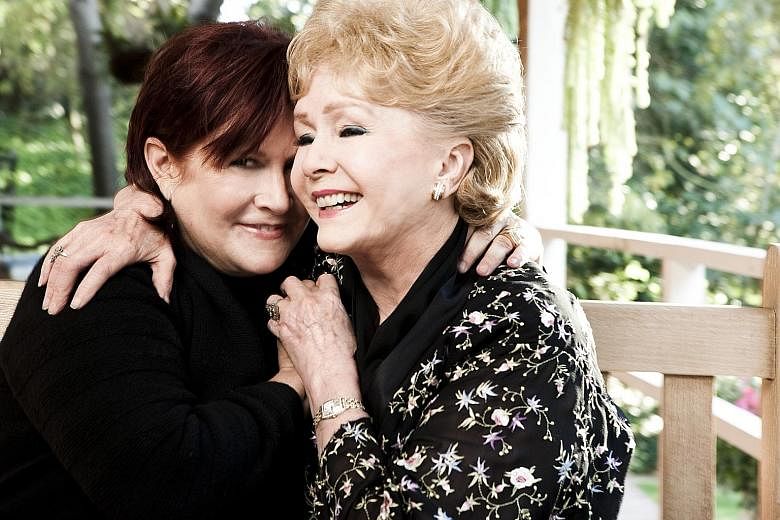NEW YORK • No one can know if actress Debbie Reynolds - who died following a stroke on Wednesday, a day after her daughter Carrie Fisher's death - died of a broken heart.
Reynolds, 84, had suffered from several health problems in recent years and doctors said any number of factors could have contributed to her death, possibly from a stroke.
But by all accounts, she and her daughter were close in recent years and death from a broken heart is a well-established occurrence - in medical literature and throughout the folklore of the earliest human communities.
One form of the phenomenon is called Takotsubo syndrome, after the Japanese term for "octopus trap" because the heart looks as if it is caught from below, its upper chambers ballooning as if trying to escape.
The sudden loss of a child or spouse, perhaps foremost among life's cruelties, sets off "an overflow of stress hormones and the heart can't take it", said Dr Suzanne Steinbaum, director of women's heart health at Lenox Hill Hospital in New York. "It appears to be a massive heart attack", and she said "the heart is literally stunned".
The octopus trap can grab any heart - healthy or not, young or old - and most people survive, doctors say. The sudden flood of stress hormones causes a temporary weakening of the heart muscle, unlike a classic heart attack, in which a clot blocks blood flow.
"I've seen estimates that about 1 per cent of perceived heart attacks" are because of broken-heart syndrome, said Dr Anne Curtis, chair of medicine at the Jacobs School of Medicine and Biomedical Sciences at the University at Buffalo, "and that seems about right. I think every cardiologist has seen cases. We tell people that many will return to normal or near-normal heart function". Reynolds did not, although the timing of her death may have coincided with her daughter's.
In her 2013 memoir, Reynolds wrote about suffering a mini-stroke and experiencing partial kidney failure. Last year, she was awarded an honorary Oscar, but was too sick to attend the ceremony.
Fisher, 60, talked about how frail her mother, "who's incredibly resilient", was. In May, she told People magazine that her mother had had a "spinal issue", but had "recovered amazingly".
If indeed a stroke was the primary cause of death, as her son, Todd Fisher, said - a heart squeezed by the sudden loss of a beloved daughter could have contributed. The stunned organ, especially in a person who might have had any of the underlying cardiovascular infirmities of ageing, could increase the likelihood of a clot forming and moving to the brain.
In a 2005 paper in The New England Journal of Medicine, doctors at Johns Hopkins University School of Medicine reviewed cases of 19 patients with chest pains and no signs of a classic heart attack. The doctors, led by Dr Ilan Wittstein, nicknamed the condition Broken-Heart Syndrome and noted that it occurred not only after grief, but also after sudden stress. Thousands of such cases have since been reported and about 90 per cent of them are women in middle age or older, he said. A possible reason, he said, is that oestrogen protects the heart's smaller vessels - those most affected by stress hormones - and oestrogen levels drop with age.
There have been cases of well-known couples dying in close succession. Country music stars Johnny Cash and June Carter Cash died within months of each other, after a long marriage. Former football star Doug Flutie's parents died on the same day, both of a heart attack.
NYTIMES

